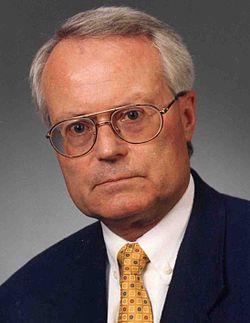Data
Karl-Ludwig Kratz 1941-2025

Prof. Karl-Ludwig Kratz, nuclear chemist at the University of Mainz, Germany, passed away March 23, 2025. Karl-Ludwig, or KL, as he was known by everybody in the field, was a pioneer in nuclear astrophysics, and a long term collaborator of JINA and JINA-CEE. He pioneered methods to explore the deep connection between the detailed structure of exotic atomic nuclei and the abundances of the chemical elements in nature. A special focus of his research were the elements produced by the rapid neutron capture process (r-process) in stellar explosions. To that end he led the development of laser ionization techniques at the ISOLDE radioactive beam facility at CERN, Switzerland to carry out some of the first experiments with exotic nuclides that are part of the r-process. His work laid the foundation for many of todays r-process research activities at radioactive beam facilities around the world. He was awarded the Glenn T. Seaborg Award for Nuclear Chemistry of the ACS in 1999 and the Hans A. Bethe Prize of the APS in 2014 for his contribution to nuclear chemistry and nuclear astrophysics.
KL also pioneered a truly interdisiplinary approach to nuclear astrophysics where work in the laboratory is closely interconnected with astrophysical model calculations. He thus served as a role model for the interdisciplinary approach taken by JINA, JINA-CEE, and by CeNAM today. He served as the director of the VISTARS nuclear astrophysics network in Germany, which was one of the first partner networks of the early JINA. This started the internationalization of JINA and was the first step towards the larger scale international network of networks approach embodied today in the International Research Network for Nuclear Astrophysics (IReNA). An important legacy from the JINA-VISTARS times was the founding by KL of the annual Russbach School of Nuclear Astrophysics in Austria. “Russbach” is today renowned across the world as one of the most important nuclear astrophysics schools. A few weeks ago, the 20th edition was held.
We will remember KL as an outstanding scientist who demonstrated that the smallest details of the structure of nuclei can shape the nature of the universe, as an educator who has impacted the careers of many working in the field today, and as a collaborator who generously shared his expertise and technical resources, and who also reminded us that science should be both, hard work, and enjoyable.
